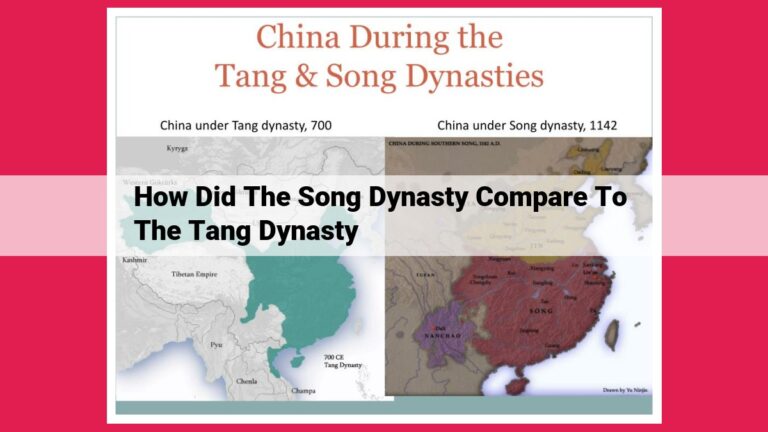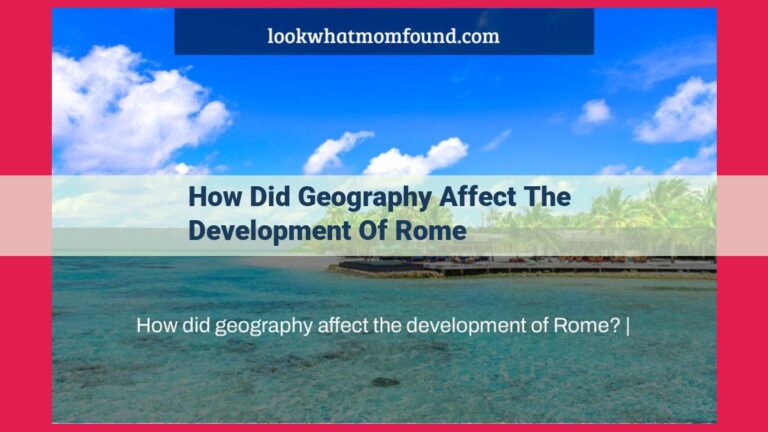Industrial Revolution And Imperialism: How Technology Fueled Colonial Expansion

The Industrial Revolution propelled imperialism by boosting transportation, communication, and manufacturing advancements, facilitating colonial exploration and control. The demand for raw materials and new markets fueled the expansion of European empires, justified by ideologies of cultural superiority and the civilizing mission. Nationalism and imperial competition drove the race for colonies, while European military superiority enabled them to conquer vast territories around the world.
Technological Advancements and Imperialism: A Catalyst for Global Expansion
Transportation Revolution:
- Sailing Innovations: Improved ships, such as the caravel, enabled longer and safer sea voyages, spanning vast distances to reach distant shores.
- Steam Power: Steamships accelerated travel time, allowing for more efficient transport of goods, troops, and colonists.
Communication Advancements:
- Telegraph and Radio: Instant communication allowed empires to control and coordinate their colonies, ensuring timely responses to events and threats.
- Postal Systems: Efficient delivery of mail facilitated communication between distant territories and the metropolis.
Manufacturing Superiority:
- Industrial Revolution: Mass production techniques increased the supply of goods, fueling the demand for new markets and resources.
- Weaponry Developments: Technological advancements in firearms and artillery gave European nations an overwhelming military advantage, aiding in conquest and control.
Raw Materials and Market Expansion: The Fuel for Imperialism
Throughout history, the pursuit of wealth and the expansion of trade have been driving forces behind human actions. In the age of imperialism, these factors played a pivotal role in fueling the relentless search for new territories by European nations.
The Allure of Raw Materials
With the Industrial Revolution in full swing, European industries were voracious consumers of raw materials such as cotton, rubber, and minerals. These resources were essential for the production of new inventions and the growth of factories. However, Europe lacked the capacity to produce these materials on its own.
Overseas colonies offered a solution to this problem. By establishing colonies in distant lands, European nations gained access to vast reserves of raw materials. This allowed them to continue their industrial development and maintain their economic dominance.
The Thirst for New Markets
Along with the need for raw materials, European nations were also driven by a thirst for new markets. As their economies grew, they sought to expand their reach by finding new consumers for their goods and services.
Colonies provided a captive audience for European products. By controlling trade in these territories, European nations could guarantee that their own industries would have a monopoly. This not only increased their wealth but also gave them a significant political advantage.
The Nexus of Wealth, Power, and Empire
The acquisition of raw materials and the establishment of new markets became intertwined with the pursuit of wealth and power. Colonies provided not only economic benefits but also a source of prestige and influence.
As European nations expanded their empires, they gained control over vast tracts of land, populations, and resources. This enabled them to project their power around the globe, secure their strategic interests, and further their imperial ambitions.
Ideological Justification for Imperialism: The Cloak of Civilization
In the annals of history, the expansion of European empires was not merely driven by economic or geopolitical ambitions. It was also fueled by a potent ideological cocktail: the belief in cultural superiority, the civilizing mission, and the spread of progress.
Cultural Superiority: The Whiteman’s Burden
European nations perceived themselves as the pinnacle of civilization, with a duty to uplift “uncivilized” societies. This cultural superiority complex was rooted in Enlightenment ideas of progress and reason, which positioned Europe as the vanguard of human advancement. Colonization, thus, was seen as a noble endeavor, a way to share the fruits of civilization with “lesser” cultures.
Civilizing Mission: The Savior’s Guide
Closely intertwined with cultural superiority was the civilizing mission ideology. Europeans believed it their duty to bring enlightenment to “savage” lands, eradicating practices deemed barbaric or backward. This paternalistic worldview justified the imposition of European values, laws, and education on colonized peoples.
Spread of Progress: The Harbinger of Modernity
The spread of progress ideology touted the benefits of European technology, medicine, and governance as universal goods. Colonizers argued that their presence would bring material advancements, improved health, and a path to modernity for colonized societies. This ideology masked the underlying economic and political exploitation that often accompanied colonization.
The Human Toll: A Pyrrhic Victory
While the ideological justifications for imperialism may have sounded noble, their implementation was often brutal. Colonization led to the displacement of indigenous peoples, the suppression of local cultures, and the exploitation of resources. The civilizing mission, in practice, became a tool for oppression and control. The spread of progress, too, often came at the expense of local economies and self-determination.
A Legacy of Contention: The Shadow of the Past
The ideological justifications for imperialism continue to shape perceptions of colonialism today. While the overt expressions of cultural superiority have waned, the legacy of the civilizing mission and the spread of progress ideologies can still be seen in the global imbalances of power and influence. These ideologies have left a bitter aftertaste in the mouths of colonized peoples, a reminder of the arrogance and exploitation that accompanied European imperialism.
Nationalism and the Imperial Race
As Europe emerged from the Industrial Revolution, nationalism took hold, fostering a sense of pride and unity within emerging nation-states. This newfound national identity fueled a desire for wealth, power, and influence, driving the race for imperial expansion.
Nations such as Britain, France, and Germany competed fiercely to establish their global dominance. Each country sought to amass colonies, believing that they would confer economic prosperity, strategic advantages, and international prestige.
Imperial expansion became a way for nations to assert their national superiority. Governments and citizens alike believed that their culture, values, and institutions were inherently more advanced than those of other peoples. This sense of cultural and racial hierarchy justified the subjugation of non-European societies.
Furthermore, the rise of imperial ideologies, such as the civilizing mission and the spread of progress, provided a moral justification for colonialism. European nations claimed that they had a duty to bring civilization to “backward” peoples, improving their lives and introducing them to modern ways of thinking.
In the face of intense competition, European nations engaged in aggressive diplomatic maneuvers and military confrontations to secure and expand their empires. The scramble for Africa in the late 19th century is a prime example of this imperial rivalry.
Ultimately, the race for imperial expansion led to the division of the world into spheres of influence, with each European power controlling vast tracts of land on other continents. This division of territory had profound consequences for the global balance of power and the fate of countless people around the world.
Military Capabilities and Imperial Conquest:
Discuss the military technologies, strategies, and overwhelming advantage possessed by European nations that enabled them to conquer and control territories around the world.
Subtopic: Military Capabilities and Imperial Conquest
The colonizers’ military prowess played a decisive role in their relentless conquest of territories worldwide. They possessed an overwhelming advantage in technology, strategies, and organizational structure that rendered resistance from indigenous populations virtually futile.
Superior Military Technology
European nations had a monopoly on advanced weaponry and military engineering. Steam-powered ships, for instance, enabled them to traverse oceans swiftly and project their power far and wide. Rifles and artillery gave them a devastating edge in battle, allowing them to decimate native armies from a distance. Field telegraphs and railroads facilitated rapid communication and troop deployment, giving the colonizers a logistical advantage.
Skilled Strategists and Disciplined Armies
European military leaders had meticulously studied the art of war. They employed sophisticated tactics, such as massed infantry formations, cavalry charges, and strategic encirclements. Their armies were highly disciplined, rigorously trained, and equipped with superior uniforms and gear. This organizational superiority allowed them to outmaneuver and overwhelm indigenous forces.
Native Disadvantages
In contrast, the indigenous populations lacked the technological and organizational sophistication of the European colonizers. They often relied on traditional weapons, such as bows and arrows and spears, which were no match for the firearms and artillery of the invading forces. Their armies were typically fragmented and poorly coordinated, lacking the discipline and training of their European counterparts.
Consequences of Conquest
The military superiority of European nations enabled them to conquer vast territories with relative ease. This led to the establishment of empires that spanned continents, the suppression of local cultures and traditions, and the exploitation of indigenous resources. The legacy of imperialism continues to shape the global landscape today, with its effects still felt in post-colonial societies.





